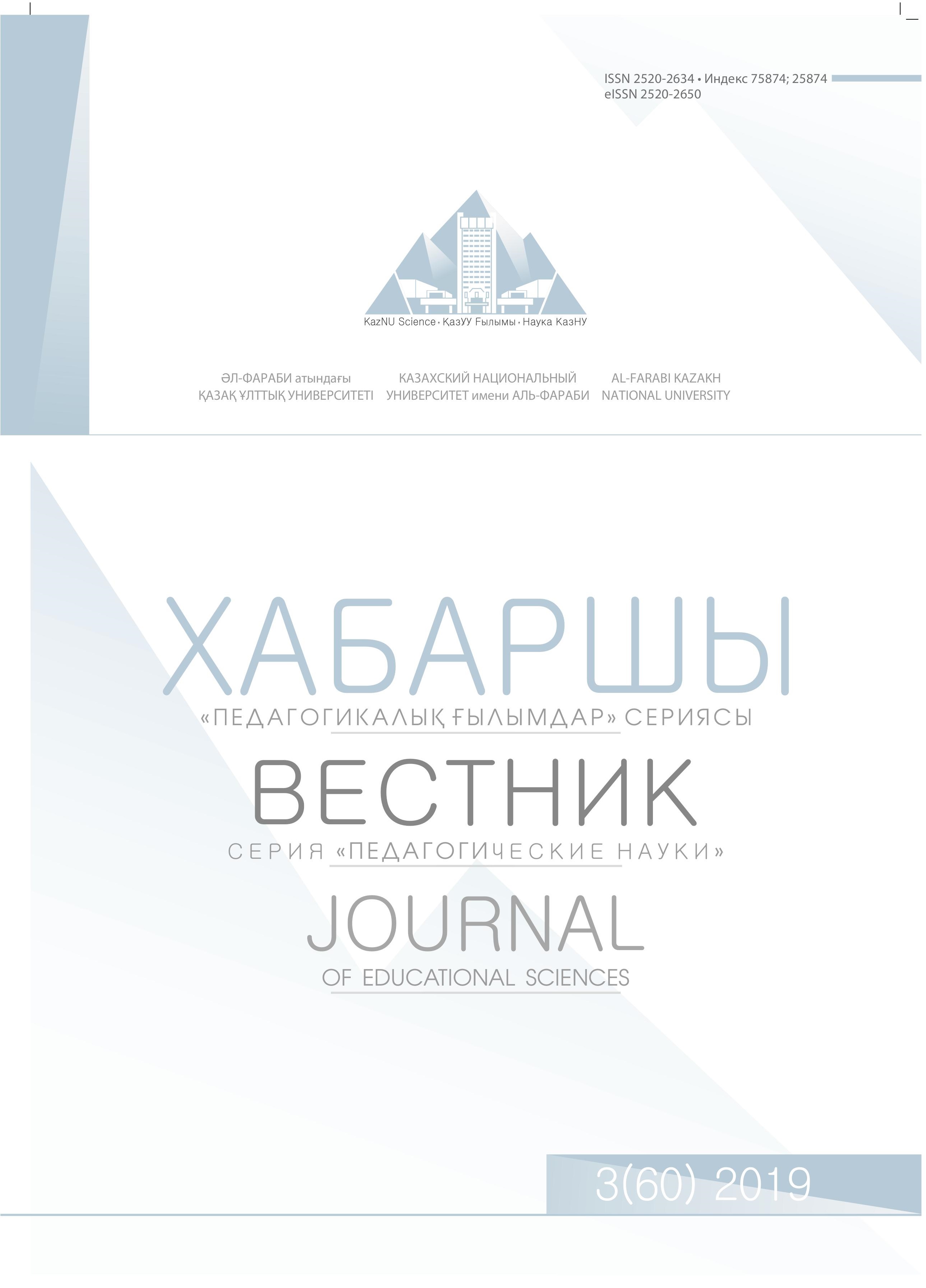Historical Features of the Development of the Contents of the Subject «Self-cognition»
DOI:
https://doi.org/10.26577/JES.2019.v60.i3.02Abstract
In the article, the authors proposed periodization of the development of the subject of «Self-cognition» in the school education of Kazakhstan, which was developed on the basis of the analysis of conceptual and methodological approaches, the methodological system of the subject «Self-cognition» itself. The structural elements of the content of the moral and spiritual education of «Self-cognition» of the updated version are considered. The features of the updated content of the subject «Self-cognition» in the elementary school, which contribute to the formation of humanistic qualities of the individual and lead to the spiritual growth of a person, are revealed. Periodization includes the stages: preparatory and experimental stages (until 2010); implementation (2010-2015), the update phase (from 2015). The experience of teaching the subject «Self-cognition» is systematized and generalized, a comparison of the development of stages (experimental → introduction → update stage) is carried out according to the criteria: continuity of normative documents, a brief description of the conceptual foundations of changes, leading ideas for constructing content, changing the didactic design of the lesson, changing teaching methods. The analysis showed that the leading idea, the concept of the subject and its implementation in Kazakhstan are strategically and prognostically relevant and significant at the present stage of development
of society. It can be called as a response of Kazakhstani education to modern crisis phenomena in a globalizing world. The modern methodological tools used to study self-cognition are innovative and advanced, both in terms of leading didactic and methodological scientific approaches (synergetic, axiological, value-semantic, environmental, design and other approaches), and in modern pedagogical tools (storytelling, creative work and art methods, singing, etc.). That is, the built-up strategies, methods and teaching technologies, at the moment, meet the global development of the science of education.
Key words: spiritual and moral education, self-conition, universal values, updated content, project activities.















